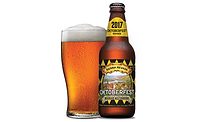Craft beer fast-growing segment for wholesaler
Breakthru Beverage Group’s craft beer specialists are helping brands flourish

With operations and affiliates that span 16 North American markets, Breakthru Beverage Group knows the importance of supplying its customers, and ultimately consumers, with a balanced portfolio of wine, spirits and beer brands. Although the lion’s share of the New York-based wholesaler’s product mix hails from the wine and spirits markets, beer — particularly craft beer — is proving to be a fast-growing segment.
“Overall, our beer brands account for approximately 6 percent of total annual sales; however, that includes big beer brands, such as Miller Coors, Heineken USA, Anheuser-Busch and Crown Imports,” says Dave Kahle, craft beer specialist and Master Cicerone for Breakthru Beverage Group. “As reflected in the marketplace, our craft beer brands represent slightly more than 2 percent of our total revenue and represent one of the fastest-growing segments in our portfolio.”
Craft beer continues to be one of the bright spots within the beer market. According to the Boulder, Colo.-based Brewers Association, small and independent U.S. craft brewers accounted for 12.3 percent of the volume share for the beer market in 2016. This is up from 5.7 percent in 2011.
In comparison to 2015, the association also found increases in operating craft brewpubs (up 11 percent), craft microbreweries (up 21 percent) and regional craft breweries (up 4 percent).
With so many brands in the craft beer space, wholesalers like Breakthru recognize the importance of finding the right partners.
“We’ve been very active in this space — seeking out new partnerships and growing our craft footprint,” Kahle says. “We have a pretty strategic approach for vetting new brands, which considers quality, compatibility to our portfolio as well as marketing strength, capital resources, regionality, profitability and more.”
With the company’s recent acquisition of C.R. Goodman, Colorado has experienced the largest growth among the wholesaler’s operating markets, he adds.
“Now, we are the largest craft beer distributor in [Colorado] with great brands including Odell, Avery, Left Hand and Stone,” Kahle says. “We continue to incorporate new brands that make sense for each market, including Dogfish Head in Minnesota, Avery in Nevada, and Odell and Toppling Goliath in Illinois. In South Carolina, we launched our beer operations earlier this year with Goodwood Brewing and Seattle Cider.”
Breakthru’s active additions of craft beer brands all are part of a long-term strategy from its top leadership.
“Selling beer along with wine and spirits allows us to meet our customers’ needs,” Kahle explains. “Buyers appreciate that our sales consultants can bring in products and ideas that work for all facets of their beverage programs. We’re constantly looking for opportunities to build on our strengths, and craft beer is a logical space for us. We evaluate segment trends, and while craft beer growth has slowed recently, we are confident it is a strong category that is here to stay.
“Further, we have expertise and statewide reach in several markets that are ripe to expand our beer footprint, as we just demonstrated in South Carolina,” he continues. “We can use this knowledge and scale to the advantage of many craft breweries looking to enter or grow in new markets.”
Knowledge is power
Although Breakthru has seen success from its craft beer portfolio, Kahle is quick to point out that can be credited to the experts within its beer divisions.
“We do have beer-focused teams in many states including Colorado, Delaware, Illinois, Minnesota, Nevada, Wisconsin and, most recently, South Carolina,” he says. “In states like Maryland and Florida, we see a lot of opportunity to grow our beer business. Craft beer specialists in each market lead training efforts, develop relationships with key accounts and generally have their finger on the pulse of the local craft beer community.”
Kahle adds that the craft beer team works closely with the craft spirits specialists to help identify opportunities to execute cross-brand promotions. “Craft beer growth within our portfolios won’t encroach on the space that our larger wine and spirits suppliers need,” he says. “At the same time, the portfolios will overlap well with our smaller producers.”
Additionally, most of Breakthru’s beer sales consultants are Cicerone Beer Server certified, a large focus for the company to help support a unique expertise, Kahle says.
In fact, the wholesaler trains each beer division sales representative to attain the first level of the Cicerone program, he adds.
“Our specialists, brand managers and trainers continue education with our sales consultants on a regular basis,” Kahle says. “Brand training, beer styles, deeper knowledge of brewing and ingredients, draft maintenance, quality and perishability, beer-and-food pairing, as well as how to sell beer are all part of our ongoing training. We want everyone to be armed with knowledge so they are comfortable and credible when communicating with the buyers, who are often well-educated on the topic.”
Kahle adds that this form of education helps the relationships between Breakthru and its partners as each specialist operates as an extension of the brands.
“We value and prioritize our partner relationships,” he explains. “We are privileged to work with smart, nimble and highly experienced team members that act as stewards on behalf of suppliers in sharing unique characteristics of our portfolio’s craft beer brands. The scariest time for a brewer is when their beer leaves their dock. We try to act as an extension of our suppliers’ quality control programs. Our goal is for the beer to reach the consumer’s glass the way the brewer intended. Education is the only way to accomplish this.”
With its army of craft beer specialists, Breakthru expects growth will continue.
“Over the next five years, our goal at Breakthru is to double our craft beer share by partnering with impactful brands that have strong growth potential,” Kahle says. BI
Looking for a reprint of this article?
From high-res PDFs to custom plaques, order your copy today!








